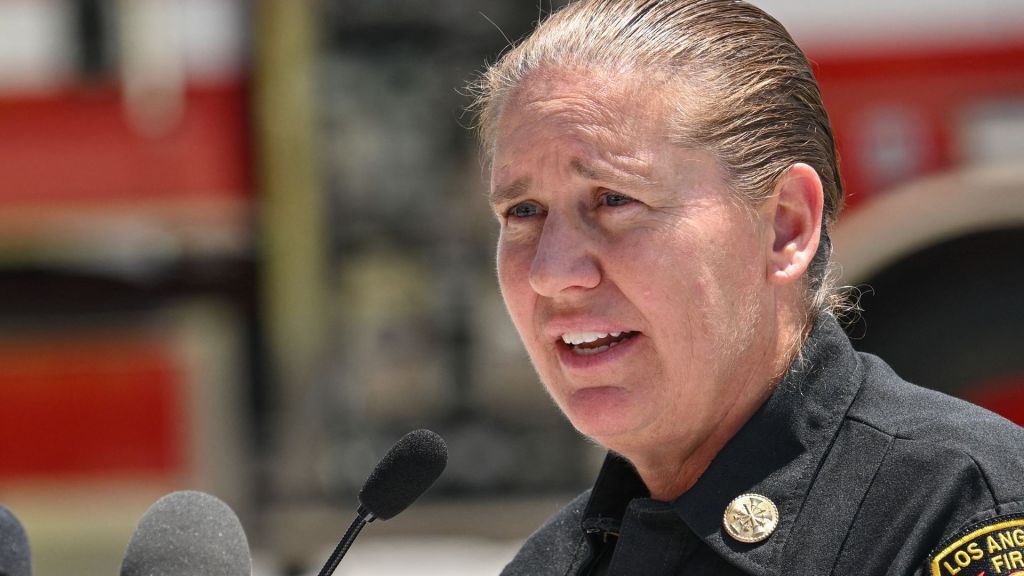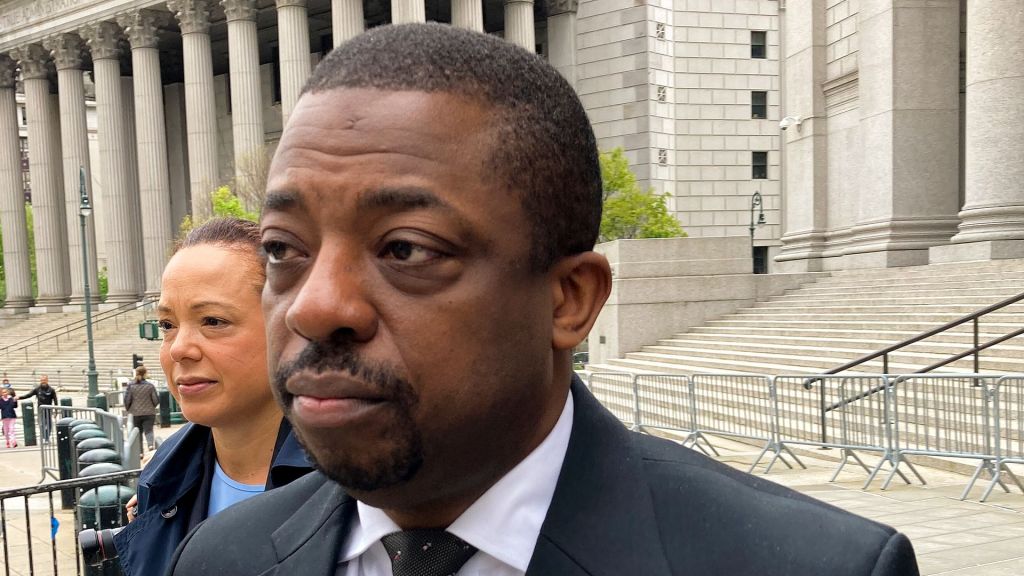
David M Walker: The truth is, the US has fiscal cancer. We have fiscal cancer. You can beat cancer. My wife beat cancer, but you first have to recognize that you’ve got it, and you need to take serious steps to deal with it aggressively and continuously.
Simone Del Rosario: That’s David Walker, former comptroller general under two U.S. presidents, Democrat Bill Clinton and Republican George W. Bush. The cancer is our national debt. But who’s going to touch that in an election year?
The IMF says fiscal policy is looser in election years. That makes sense, politicians are making you promises for your vote and promises usually cost money, whether it’s increased spending like forgiving student debt or tax cuts. It all affects the bottom line.
More than half the world is voting in an election this year, that’s a lot of loose fiscal policy, but the IMF says US fiscal policy poses “significant risks” for everyone.
David M Walker: The bottom line is we’ve got too many politicians that promise something for nothing. They’re living for today. They promise debt relief, they promise additional spending, they promise tax cuts, and they would fail math. And they’re also failing their stewardship responsibilities to this country and to future generations of Americans.
Simone Del Rosario: I asked Walker how you make fiscal responsibility a winning issue.
David M Walker: Well, first you have to wake up the American people to help them understand what the potential adverse consequences for our country and their families will be if we don’t put our finances in order. And once you do that, then you need to get them actively engaged in putting pressure on their elected officials to make tough choices sooner, rather than later, and before we have a crisis, because we will have one if they continue to fail to act.
Simone Del Rosario: And what are those consequences?
David M Walker: Well, we are already seeing some short term consequences. Excessive spending results in additional debt. Additional debt slows economic growth. Additional debt has pushed up. Interest rates is increased. Inflation. People are starting to feel that at the gas station in the grocery store, etc. You know the projections are that the gap between projected revenues and expenses are supposed to increase even more. Not only have US federal agencies expressed concern, but now the IMF has expressed concern about our path. The truth is, no country is immune from the laws of prudent finance, including the United States, if we don’t end up putting our finances in order, things are going to get a lot worse over time, not better.
Simone Del Rosario: But when voters go to the polls on, you know, in November of this year, saying things are going to get worse over time if we continue on this path isn’t really an urgent message for people, they’re going to hear, Oh, you know, if I elect Trump, he wants to cut my taxes. If I elect Biden, he wants to forgive my debt, or something along those lines, like something that makes them go, I’m excited to vote for this candidate, versus the candidate that would say, You know what, we’re in a bad situation. We need to raise taxes and cut spending.
David M Walker: Well first, the biggest deficit the country has right now is a leadership deficit. The last person that we had who was fiscally responsible as a president was Bill Clinton. The last time we made any tough choices was when Clinton was in the White House and the Republicans controlled the Congress. The first four years that I was Controller General United States, we had surpluses. We actually paid down debt two of those four years. But things have totally spun out of control since 2003 both political parties are responsible for it. Yes, we need to increase economic growth to try to get the economy to grow faster than the debt, but we’re going to have to reprioritize and reduce spending. We’re going to have to reform social insurance programs, and we’re going to have to generate more revenues. We have to do all of those. We need to do it sooner rather than later, to reduce the risk of a crisis and to get the miracle of compounding to work for us rather than against us.
Simone Del Rosario: If we look at our national debt, obviously the number is really startling. Since 2019 our national debt has gone up more than 50% but at the same time, the US economy, our GDP has grown about 27% so can we grow out of this?
David M Walker: No, you cannot grow your way out of this problem. The math doesn’t come close to working. There are several things that work against us. One demographics, known demographic trends. We have an aging society. We don’t have an adequate birth rate for replacement. Therefore, we have to rely upon immigration in order to help us grow the population. But it needs to be the right kind of immigration, and it needs to be legal immigration, not illegal immigration. In addition to that, health care costs continue to grow faster than the economy. Furthermore, the fastest growing cost is interest, for which we get nothing. So you can’t grow your way out, although we want pro growth approaches, tough choices will be necessary. The longer we wait, the bigger they’ll have to be in the less transition time.
Simone Del Rosario: So how does this national debt affect American families today?
David M Walker: Today, the way that it affects is the excessive spending, which resulted in more debt, results in higher prices, more inflation results in higher interest costs, whether you’re trying to buy a house, whether you’re trying to buy a car. You know, on your credit cards, if you will. You know, unfortunately, our debts going up and savings is going down. That’s exactly the opposite of what you want for a better future, both for a country as well as for individuals. But again, that’s just the tip of the iceberg. You know, people talk about $35 trillion in debt. You know, that doesn’t count the unfunded civilian, military pensions, retiree health care, unfunded Social Security, Medicare. The real numbers over 120 trillion, over $120 trillion we only have, you know, 340 million people in the country. So everybody. Got a lot of debt they don’t realize. And it’s getting worse if the if the elected officials don’t start doing their job.
Simone Del Rosario: I’ve talked to a lot of economists who obviously have very serious warnings about especially Social Security and Medicare and the ability for the US to pay for those programs over time, given those demographic changes that you’re talking about as well. But both presidential candidates have said in no uncertain terms, black and white here, they are not going to cut Social Security and they’re not going to cut Medicare. And don’t you think that’s something that voters take to the bank?
David M Walker: Well, first, anybody who tells you, including the two leading presidential candidates that they’re not going to touch Social Security is a laggard, not a leader, because if you don’t touch Social Security, there’s going to be automatic 20% plus across the board cuts in less than 10 years. That’s inequitable. It’s unacceptable. It can’t happen. And so as a result, you know, people need to call them out on that. We need to reform Social Security. The good news is, I used to be a trustee of social security medicare. We can reform Social Security and exceed the expectation of every generation of Americans with leadership. First, young people like yourself don’t think they’re going to get it. They’re wrong. They will. They may get it a different age and a different amount, but they’re going to get it. Secondly, seniors think they’re going to get taken advantage of I could use other words, but I won’t, because it’s not fair, it’s not politically feasible. So we have the ability to reform the program phased in over time, where every generation will get more than they think they’re going to get, not necessarily more than what the current program is, but more than they think they’re going to get. I call that a win. If you can exceed the expectation of every generation. That’s a win, but it takes leadership and it takes a little bit of courage, and quite frankly, we don’t have enough of either right now, President
Simone Del Rosario: Biden is proposing a $7 trillion spending package. What’s your least favorite part about it?
David M Walker: I guess my least favorite part is we’re already in a $35 trillion hole, and and he’s wanting to spend more and give away some of the largest asset that we have on the balance sheet. I don’t know if you really realize it or not, but the largest asset on the federal government’s balance sheet is student loans, and he’s wanting to give away over hundreds of billions of dollars in student loans that, quite frankly, is inequitable, irresponsible and unconstitutional, and I fully expect that he’ll be struck down again by the Supreme Court.
Simone Del Rosario: And this goes back to what the IMF said, which was that fiscal policy is a lot looser in election years. That would be what many would perceive to be an election issue. Hey, we’re going to forgive some student debt. That’ll get some voters on board. On the other side, we’re hearing from this exclusive Reuters report that came out this past week, that Trump has told a few advisors, in the least that he is keen on a middle class tax cut if he is elected. My question to you is a tax cut in this economy, is that a good idea?
David M Walker: Look, all of the Trump tax cuts were scheduled to expire at the end of 2025 that is not a prudent approach. Some of them should and likely will be extended. But not all of them, not all tax cuts stimulate the economy. Very few tax cuts pay for themselves. The bottom line is is we’ve got too many politicians that promise something for nothing. They’re living for today. They promise debt relief, they promise additional spending, they promise tax cuts, and they would fail math, and they’re also failing their stewardship responsibilities to this country and to future generations of Americans.
Simone Del Rosario: That’s part of our problem. And both candidates have said that they’re, you know, wanting to extend at least some of those existing tax cuts. What we’re talking about right now with Trump is additional tax cuts on top of those 2017, tax cuts that have been in place for now I’m wondering…
David M Walker: That’s not going to happen. That’s not going to happen. All right, look, we need to do several things. Number one, we need to be able to to restructure our social insurance programs to make them solvent, sustainable and secure. We need to reprioritize and reduce discretionary spending, including defense, without compromising national security. We need to engage in more comprehensive tax reform that will make it simpler, fairer, more important, enforceable, competitive and generate more. Revenues as a percentage of the GDP, and we need to engage in more pro growth policies. We need to do all of those things. Additional tax cuts and additional spending will make our situation worse, not better. It’s just the new four letter word in fiscal policy, math.
Simone Del Rosario: And why it would make it worse. We’ve we’re living in this economy, and I know that, you know, a lot of people are currently hurting in the economy. We see how inflation is largely affecting all of our necessary spending, while, you know, the discretionary spending isn’t really seeing a bunch of inflation left over, but people are already feeling pinched. But the point of it was that was the Fed’s idea to kind of pinch the economy to try to bring down inflation. And I know while it’s painful for American families to live through, Jerome Powell warned that it would be painful if you stimulate the economy at this point, do you undo all of the work that’s been done to this point,
David M Walker: Well, let’s talk about how we got to where we are the first two years of this administration, when one party controls the Senate, the House and the White House. And for the record, I’m a political independent, the Congress and the president fall followed the flawed and failed modern monetary theory, which says deficits and debt don’t matter, as long as you can borrow in your own reserve currency, unless and until you have excess inflation. Interest rates were artificially low and expending exploded. The Federal Reserve kept rates too low too long. They bought trillions of dollars a US debt, rather than going to the market, the result of that was excess inflation. Then they had to raise interest rates. And so the good news is, is that I think the modern monetary theory can be thrown into the dustbin of history. But the problem is, it exacerbated a large and growing problem that we had before. Now we have to recognize reality that not only can we not follow that again, but we need to start making tough choices before we have a crisis of confidence in the ability of the US to put its finances in order.
Simone Del Rosario: And it’s not just the United States. The IMF said the US debt is posing significant risks to the rest of the world. How does US debt hurt everyone else?
David M Walker: The US has the largest economy based on nominal dollars. The US has the largest reserve currency. The US is the largest, you know, a very large and important trading partner, if you will. You’ve heard the old saying, if the US gets a cold, the world gets the flu. The truth is, the US has fiscal cancer. We have fiscal cancer. You can beat cancer. My wife beat cancer, but you first have to recognize that you’ve got it, and you need to take serious steps to deal with it aggressively and continuously. We need to do that, because if we have lose the confidence of our lenders, there will be, not only economic consequences the United States, there will be serious adverse economic consequences around the world.
Simone Del Rosario: David Walker, former Comptroller General of the United States, thank you so much.
David M Walker: Great to be with you. Simone











